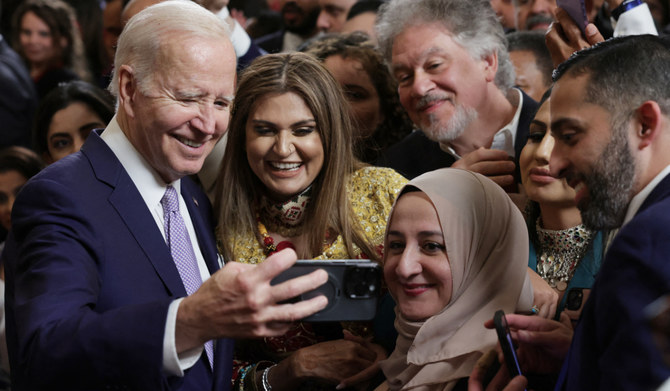
Yair Lapid, the caretaker Israeli prime minister, needs to score a win if he is to remain in the post after the November elections. Lapid, who represents the center left, has a certain vision of a two-state solution and might push for it if he retains power.
Unlike Naftali Bennett, who adopts a dogmatic philosophy and believes the land of historic Palestine is for the Jews and for the Jews only, Lapid has a more pragmatic worldview, and believes that Israelis and Palestinians should live side by side in peace in two neighboring states.
Lapid has a three-month window in which he can call the shots before the elections. If he scores an important win in foreign policy or domestically and wins the premiership, it will be an advancement for peace in the region. His victory would be a relative win for Arab states whose interests lie in peace and in the two-state solution.
Today, the hot topic when it comes to Israel’s foreign policy is the demarcation with Lebanon. While Hezbollah is raising the stakes and threatening to hit Israel, claiming all of the country is within range of its missiles, in its dispute over access to disputed natural gas fields, the Israel Defense Forces Joint Chief of Staff Aviv Kochavi is acting more like a politician than a military figure and saying that Lebanon will face “unprecedented bombing” if a war breaks out.
Tensions have reached their height and it is time for a deal or a strike. Both parties would prefer an agreement, and this is an occasion not only to clinch a deal with Lebanon but also to set the pace for a new track in Israeli foreign policy.
The former Israeli leader Benjamin Netanyahu, whose foreign and domestic policy relied on hatred and fear, had a well-known line. He said that if Arabs laid down their arms, there would be no war, but if Israel laid down its arms, there would be no Israel. This line is now obsolete, as no Israeli in their right mind believes that.
Despite the fact that Israeli society is moving to the right, there is a window to capitalize on this changing perception to push for peace. There is an opportunity to showcase to the Israeli public that by making the right decisions at the right time to the right people, Israel can provide security to its people. There is a window through the Lebanon deal for Lapid to show that through negotiations and not through military action, Israel can guarantee its security. It is also an opportunity for Israel to show that it can be generous if the other party understands and fulfills its security concerns.
It is time for Lapid to make a generous proposition that will set the pace for Israel’s foreign and domestic policy should he become prime minister.
Dr. Dania Koleilat Khatib
Regardless of the threats by its chief Hassan Nasrallah, Hezbollah does not want a confrontation. The group knows that, unlike in 2006, this time if Israel destroys the south, money will not flow from the Gulf for reconstruction and Iran, still technically under maximum pressure, is unlikely to be able to foot the bill. Hence Hezbollah will tacitly accept a deal that will stabilize the borders and prevent a strike on Lebanon. It is time for Lapid to make a generous proposition that will set the pace for Israel’s foreign and domestic policy should he become prime minister.
Israel and Lebanon have been quarreling over the line from which to start negotiations. While the technical team, which is under the jurisdiction of the Lebanese armed forces, wants to start from Line 29, Israelis are insisting on Line 23, which was set by the previous incompetent government of Najib Mikati in 2011.
However, thinking logically, Israel is a rich country and a few hundred kilometers of gas field will not really make a difference. Lebanon on the other hand is in a destitute position and the gas can lift the country out of its misery, provided that the funds generated are directed toward development and do not end up in the pockets of corrupt politicians.
Here, instead of being petty and negotiating on a few hundred kilometers more or less, on Line 29 or Line 23, Israel should have a broader horizon. It should think that it is in its own interest to have a stable and prosperous Lebanon because problems with its neighbors are bound to affect it.
Hence Lapid should make the proposition that Israel is ready to show generosity if two conditions are met. The first is signing a non-aggression agreement with the Lebanese state. The agreement falls short of full normalization as there are many complex issues at stake between Lebanon and Israel, and Lebanon is committed to the Arab Peace Initiative that bases normalization on the two-state solution and with the pre-1967 borders. However, the agreement will provide stability for both countries waiting for a more final and comprehensive deal.
The other condition is to make sure that the funds Lebanon gets will not feed corruption further, creating more instability. Even if simply an announcement is made in this regard, it will show goodwill and allow Lapid to garner international praise and support.
On the other hand, Arab countries should welcome such a proposition and endorse it, even if they do not have formal diplomatic relations with Israel. Though Lapid has a narrow window of three months, it is his chance to break with the past and set a new pace for Israeli politics that will lay the foundation for a comprehensive and sustainable peace.
• Dr. Dania Koleilat Khatib is a specialist in US-Arab relations with a focus on lobbying. She is co-founder of the Research Center for Cooperation and Peace Building, a Lebanese NGO focused on Track II.












